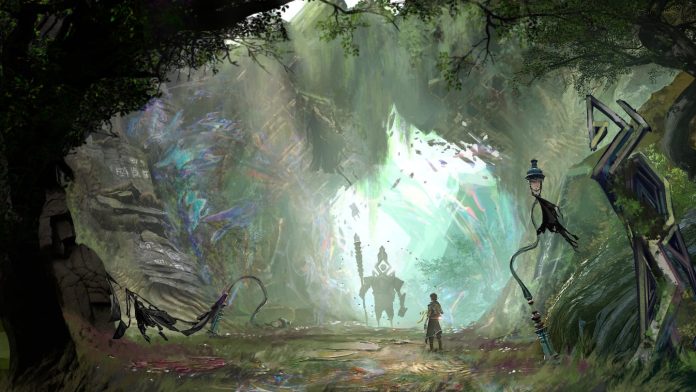
But my mind was made up when the screen brightened after a battle versus one of the mysterious, spindly creatures that populate the world of “Clair Obscur,” and I heard singing. Several unaccompanied voices braided, separated, weaved back together in a fashion that sounded like it could have come straight from the pen of Guillaume Dufay, Josquin des Prez, or another one of those Franco-Flemish fellows circa 500 years ago. The singers had clearly done their time in small vocal groups; their blend was exquisite. I learned the track was called “L’Aurore aux Doigts de Roses,” or “rosy-fingered dawn,” a reference to Homer’s “Odyssey.” Where had this been, where did this come from, and — most important — who else was hearing this?
Get Starting Point
A guide through the most important stories of the morning, delivered Monday through Friday.
Pretty much the whole world, as it turned out. “Expedition 33,” developed by the small French studio Sandfall Interactive, had broken containment. Even French President Emmanuel Macron publicly congratulated it, calling it a “shining example of French ingenuity and creativity.” The game released on April 24, and by early May, the eight-hour soundtrack album was perched atop the Billboard classical albums chart. As of July 1, it’s still there, though its weeks-long reign was briefly interrupted by a name much more familiar to those parts: Andrea Bocelli.

The composer behind most of the music is French guitarist Lorien Testard, a self-professed game music fanatic who had never created music for a major game before, and joined the project after lead writer Guillaume Broche stumbled across his music on an online forum and reached out. Testard didn’t respond to an interview request, but in a video featurette the studio released earlier this year, the composer said he’d wanted to create an “entire sound universe,” and he’d taken much inspiration from art director Nicholas Maxson-Francombe’s “evocative and stunning” concept illustrations.

But just as important was Testard’s collaboration with singer Alice Duport-Percier, former singer of the polished nerdy-classical fusion group Grissini Project as well as a core member of several early music ensembles, including Les Kapsber’girls, a clever allusion to the 15th-century Italian lutenist and composer Kapsberger. (Their 2021 album “Vous avez dit brunettes?” might have been my favorite album art of any classical release ever.)
After Testard invited Duport-Percier to sing on the soundtrack, she initially thought she’d just be working off the score. Instead, Testard invited her to compose and improvise her own vocal lines over his instrumentals. The first day they collaborated, they created one of the major themes for the game, which they said made it into the final cut almost unaltered. “It felt like beginner’s luck, like winning a board game the first time you play,” Duport-Percier said in the featurette.

Conductor and arranger Daniel Sicard, who led the sessions for the music that was recorded live, was similarly enchanted. “This isn’t some big production making just another game,” he said. “There’s a genuine emotional connection.”
In video games, as in so much popular entertainment, we are living in the age of franchise dominance. Unsurprisingly, this year so far, most of the hype and press have gone to major players in the industry releasing new installments based on existing intellectual properties: for example, “Sid Meier’s Civilization VII,” “Monster Hunter Wilds,” and “The Elder Scrolls IV: Oblivion Remastered,” each of which has roots going back decades.
By contrast, “Clair Obscur” features a totally original narrative. It feels apt that it released just a few days after the US theatrical debut of Ryan Coogler’s “Sinners,” another successful self-contained story where music plays an indispensable role. You have not met these characters before, and you don’t know what’s going to happen to them. (Want to play the game? Don’t read the comments on any of the soundtrack videos. There be spoilers.)
The same goes for listening to the soundtrack. You’ll probably pick up on a theme — perhaps the sweet and sad melody for the ruined city of Lumiére, where the game starts, or a snatch of the rhythmically mercurial, piano-driven “Alicia,” which plays over the title screen. From there on, however, all bets are off. “Gestral Arena” is a galumphing, Sousa-esque march to represent a society of whimsical creatures that delight in challenging the player to duels. “Lampmaster” sounds like what might ensue if Handel or Vivaldi had been playing around with a digital audio workstation while writing their concertos. And “Megabot #33”? A clattering, glitchy beacon to the dance floor.

Which is to say, there are classical pieces on the “Clair Obscur” soundtrack, but the eight-hour album also contains jazz, symphonic rock, ambient, dance, chanson-esque chamber pop, and more classifications than this article can hold. I’m not sure if I’d personally label the entire eight-hour soundtrack as “classical,” but there is certainly a critical mass of pieces that I’m dying to hear from live musicians, whether that’s a solo cellist or guitarist, a chamber choir, or a full orchestra. And if the powers that be at Billboard deem it’s classical, I won’t complain. Andrea Bocelli will probably be back up there soon enough.
A.Z. Madonna can be reached at az.madonna@globe.com. Follow her @knitandlisten.
